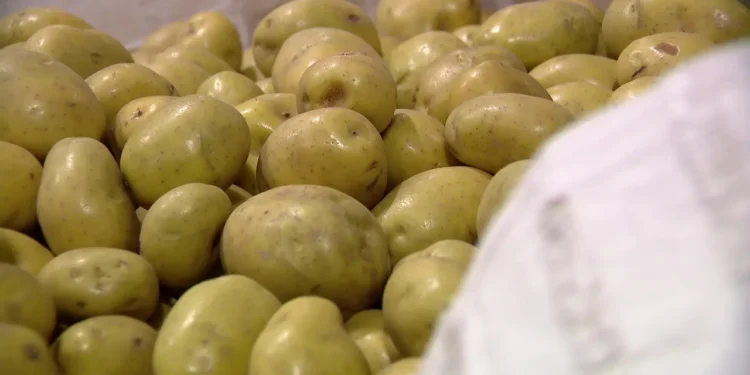As the government shutdown entered its ninth day with no resolution in sight, Food Lifeline, a Seattle-based nonprofit, is preparing emergency food distribution sites for federal workers who may soon need food bank assistance.
Many people affected by the shutdown don’t know when they will receive paychecks, potentially forcing tough decisions between paying bills or buying food.
According to Feeding America, many Americans are a single missed paycheck away from needing local food bank support. The nonprofit stated: “A prolonged shutdown will deepen the strain, and more families will seek help at a time when food banks are already stretched due to sustained high need.”
Food Lifeline, a Feeding America network partner distributing goods to at least 300 food banks, pantries, and shelters in western Washington, reports supply is running thin.
“We can’t fill this warehouse fast enough because, as soon as we get food in, it’s going right out,” said Aaron Czyzewski, Food Lifeline director of advocacy and public policy. “We don’t have what we need. We don’t have enough. Demand is exceeding what we’re able to provide. And that’s true all across the state.”
Czyzewski said Food Lifeline and partners have faced food shortages since the COVID-19 pandemic. Limited available resources could soon stretch thinner as federal workers turn to food banks during the shutdown.
“Right now, we still have inflation. So, grocery prices are high, cost of living is high,” Czyzewski said. “If you add in the problems from the government shutdown, food banks will be overwhelmed. They’ll need help. They’ll need communities to rally for their support.”
President Donald Trump met with his Cabinet Thursday to discuss how the shutdown affects Americans relying on government funding and services. The president remained firm on threats to block back pay from some furloughed federal workers he claims “won’t qualify” once the shutdown is resolved.
Beyond federal workers, Feeding America said active-duty military members, senior citizens, and federal contractor employees will also be affected, potentially “suddenly face impossible choices not knowing if paychecks or food benefits will arrive on time.” Programs like WIC and SNAP already facing federal budget cuts could also be impacted during the shutdown.
In response to local needs, Food Lifeline is using $50,000 from its reserve fund to buy food and will establish emergency distribution sites next week in areas where federal workers live.
Czyzewski said the hunger issue extends far beyond the current government shutdown. “Right now, it’s playing out as a political problem in Washington D.C., but this is a real problem in people’s households. One out of two babies in Washington state is on the WIC program. Those benefits, if they stop or are interrupted, that’s keeping food from families with young children,” Czyzewski said.
Until the federal government resolves the shutdown, Czyzewski said food banks rely on state and local support to help those who need it most.
“If we can de-politicize hunger, we can avoid a lot of the heartache and the stress and the grief that comes with food insecurity. And put people in better situations where they feel secure and they can go on with their lives,” Czyzewski said.
Those wanting to support can donate to Food Lifeline or contact their local food bank to determine needs.







